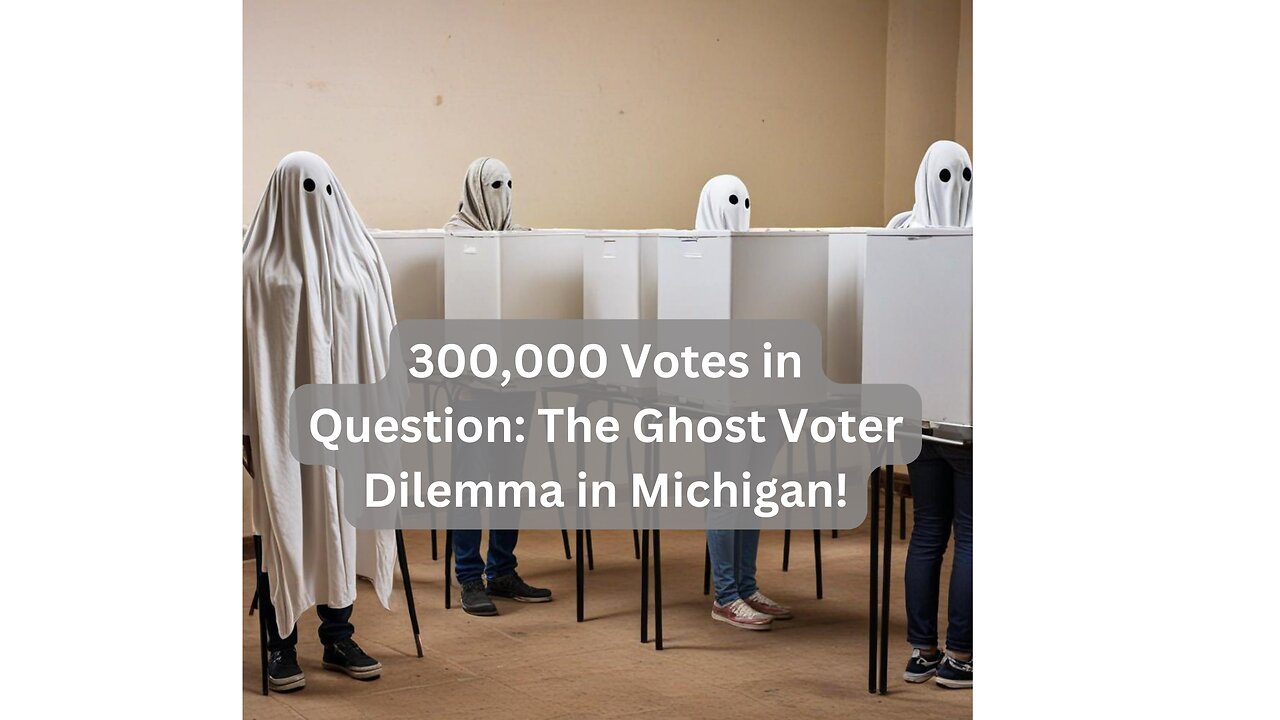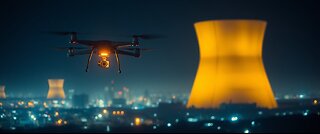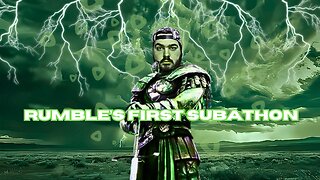Premium Only Content

Could Ghost Voters Decide Our Elections? The Startling Michigan Report!
America's Democracy in Crisis: Unmasking the Ghost Voters of Michigan
America. The land of the free, the home of the brave. A beacon of democracy for the world. But what happens when that democracy, the very foundation of our nation, is under threat? What happens when the integrity of our elections, the cornerstone of our republic, is called into question? This isn't about partisan politics; it's about the survival of our nation as we know it. The right to vote is sacred. It's the lifeblood of our democracy. It's the voice of the people, the ultimate expression of our collective will. But when that voice is silenced, when that right is compromised, the very soul of America is in peril. We've seen it before in other countries, where rigged elections and stolen votes have plunged nations into chaos. We cannot, we must not, let that happen here.
The 2020 election left many Americans deeply troubled, with a lingering sense of unease about the security and legitimacy of our electoral process. Across the country, allegations of irregularities, inconsistencies, and outright fraud have cast a dark shadow over what should be a moment of national unity and democratic renewal. From coast to coast, a chorus of concerned citizens is demanding answers, demanding accountability, demanding action. This isn't about overturning elections or relitigating the past. This is about ensuring that every vote counts, that every voice is heard, and that the American people can have confidence in the results of our elections. The stakes are simply too high to ignore these concerns, to dismiss them as partisan rhetoric or conspiracy theories. The future of our democracy hangs in the balance.
Michigan, a state steeped in industrial history and Midwestern values, finds itself at the heart of this national debate over election integrity. A bombshell report has sent shockwaves through the political landscape, alleging the existence of a staggering three hundred twenty thousand ghost voters on the state's voter rolls. These aren't your friendly, neighborhood Casper-types, but rather phantom voters who exist only on paper, their spectral presence casting doubt on the legitimacy of Michigan's elections.
But what exactly are ghost voters, and how do they materialize on voter rolls? These phantom electors can take many forms, from individuals registered at vacant lots and abandoned buildings to duplicate registrations and the names of deceased voters who somehow remain stubbornly present on the rolls. The implications are clear: If these phantom voters are indeed real, they represent a gaping vulnerability in our electoral system, a backdoor through which fraudsters could potentially swing elections.
The sheer scale of the alleged ghost voter problem in Michigan is deeply concerning. Three hundred twenty thousand phantom voters, if they indeed exist, represent a significant portion of the state's electorate, enough to potentially tip the scales in a close election. This isn't just a theoretical concern; Michigan has a long history of razor-thin election margins, making it particularly vulnerable to even small-scale manipulation. Critics argue that these allegations are overblown, that they're based on faulty data or misinterpretations of voter rolls. They point to the fact that voter rolls are constantly in flux, with people moving, passing away, and registering to vote. Maintaining accurate rolls is a complex and challenging task, they argue, and some errors are inevitable.
But can these errors truly account for hundreds of thousands of potentially fraudulent registrations? The American people deserve answers.
-
 1:56
1:56
Conspiracy Chronicle
8 days agoMysterious Drones Over New Jersey: Are They Hunting for Nuclear Radiation?
1062 -
 LIVE
LIVE
LFA TV
15 hours agoTIME FOR A NEW SPEAKER! | LIVE FROM AMERICA 12.26.24 11am EST
4,165 watching -
 1:40:22
1:40:22
Game On!
12 hours ago $3.86 earnedNFL Thursday Night Football Seahawks at Bears EXPERT Picks!
25.2K4 -
 DVR
DVR
xBuRnTx
1 hour agoWho's Ready for New Years!
16.3K -
 12:09
12:09
Tactical Advisor
14 hours agoSmith & Wesson Shield Plus Carry Comp
12K1 -
 4:35:25
4:35:25
Father Russell
7 hours agoDelta Force | Not A Woman? | Mad Martigan Time
38.5K3 -
 3:29:42
3:29:42
BrookieMonster
14 hours ago $44.15 earnedChristmas Stream: Marvel Rivals with CallmeSeags 🎄
175K13 -
 LIVE
LIVE
TheSaf3Hav3n
4 days ago| RUMBLES FIRST SUBATHON IS HERE!!! | DAY 4 |
471 watching -
 6:54
6:54
Dr. Nick Zyrowski
2 hours agoHIGH PROTEIN DIET Fixes Your Metabolism! - Weight Loss Not Required
14.6K5 -
 3:14:33
3:14:33
Joe Donuts Gaming
16 hours ago🟢 Live : Christmas is Here!! | Fortnite, Caroling, Light Tours and Donos !!
92.5K15